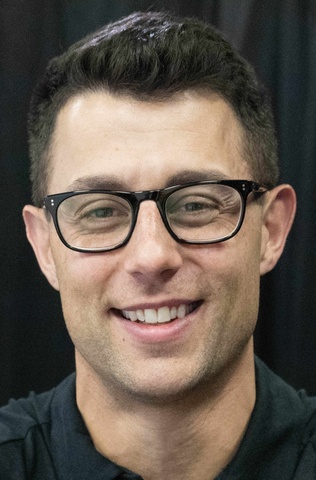Drivers who feel drowsy could benefit from taking breaks, but the gains in driving performance appear to be temporary, according to a new study led by a University of Iowa researcher.

John Gaspar, director of human factors research at UI’s Driving Safety Research Institute, and a team of researchers studied whether drivers who take voluntary breaks during late-night drives would have improved driving.
The study involved 90 participants, ages 21 to 55, who completed an overnight drive in a driving simulator after being awake for at least 16 hours. The simulation and drive lasted about three hours and allowed participants to decide when and whether to stop at rest areas. During breaks, they were able to consume caffeine, eat, stretch, or use the restroom.
The researchers found that drivers who consumed caffeine during their stops immediately improved their driving, measured by how often the vehicle they were driving strayed from its lane. Drivers who took a break but didn’t consume caffeine also showed an immediate driving improvement.
In both cases, the researchers found that drivers who took breaks, with or without caffeine, experienced a limited-time improvement in driving, and the upgrade in driving performance lasted longer for those who consumed caffeine than for those who didn’t.
“The findings suggest that breaks may help drowsy drivers, but that they do not completely alleviate the effects of drowsiness,” the researchers write.
The research team also found that most participants chose not to stop at all, despite feeling tired. Gaspar said that reflects a common risk on the road: Drivers often keep going even when they know they’re too tired.
“If drivers better understand that breaks — especially those paired with caffeine — can delay performance declines associated with drowsiness, they may be more likely to look for opportunities to take a break when they feel drowsy,” says Gaspar, the study’s corresponding author.
In addition, researchers say the findings demonstrate a need for more definitive public safety messaging, including what drivers should do when they start feeling drowsy.
They also emphasize that caffeine isn’t a substitute for sleep because its effects are short-lived. However, in unavoidable overnight driving situations, combining rest breaks and caffeine could reduce crashes.
Other study authors include Brian Tefft and William Horrey, from the AAA Foundation for Traffic Safety; and Cher Carney, from the Driving Safety Research Institute.
The study, “The Impact of Self-Initiated Breaks During Drowsy Driving,” was published online June 5 by the Oxford University Press on behalf of the Sleep Research Society.
The research was funded by the AAA Foundation for Traffic Safety.